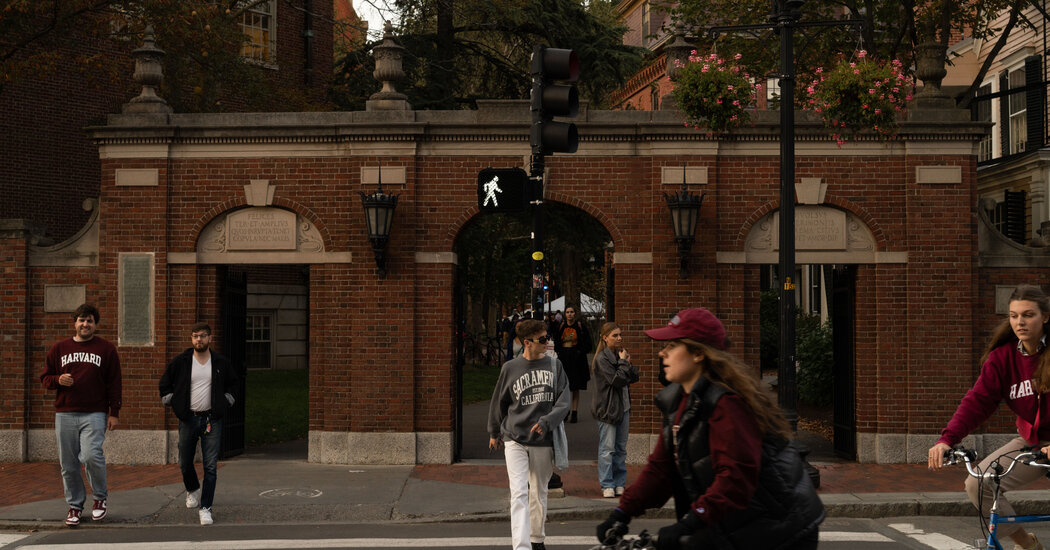Republicans have been attacking elite universities for years. After a tense congressional hearing last week, many on the left are joining them.
For years, conservatives have struggled to persuade American voters that the left-wing tilt of higher education is not only wrong but dangerous. Universities and their students, they’ve argued, have been increasingly clenched by suffocating ideologies — political correctness in one decade, overweening “social justice” in another, “woke-ism” most recently — that shouldn’t be dismissed as academic fads or harmless zeal.
The validation they have sought seemed to finally arrive this fall, as campuses convulsed with protests against Israel’s military campaign in Gaza and hostile, sometimes violent, rhetoric toward Jews. It came to a head last week on Capitol Hill, as the presidents of three elite universities struggled to answer a question about whether “calling for the genocide of Jews” would violate school rules, and Republicans asserted that outbreaks of campus antisemitism were a symptom of the radical ideas they had long warned about. On Saturday, amid the fallout, one of those presidents, M. Elizabeth Magill of the University of Pennsylvania, resigned.



It so happens that there’s a comprehensive survey of the topic here. Highlights include
and
As you see, sympathy for Israel has been fairly stable for 30 years, and while people who do believe in that prophecy are much more likely to sympathize with Israel, they are a (large) minority and even the people who don’t belive in it are twice as likely to sympathize more with Israel than with Palestinians.
Given that most of the believers in that prophecy would probably sympathize with Israel even if they didn’t believe in it, I think it’s reasonable to conclude that that belief has a significant effect but not the dominant effect on Republican policy.
But that’s not an explanation for why Republicans suddenly care so much about Jews.
I don’t see why you’re claiming that this opposition to antisemitism has appeared suddenly, given that American attitudes haven’t changed much in decades. People (both Republicans and Democrats) are suddenly talking about antisemitism more, but that’s a response to a rise in (open) antisemitism and not a sign of increased opposition to antisemitism. I think both parties from thirty years ago would respond the same way the modern parties are responding.
I don’t know, maybe growing up as a Jew in America has given me a little perspective about how Republicans have viewed me my whole life…
My experience as a Jewish kid in Texas* in the 90’s must have been quite different from yours - most people didn’t care, some people were curious, and there were a couple who made well-meaning attempts to convert me to Christianity, but the only “hostility” I ever encountered there was from a seven-year-old boy who told me he wouldn’t play with anyone who didn’t love Jesus.
*The county where I lived voted 70% Trump 30% Biden in 2020.
I’m not talking about the Republican rank and file. I’m talking about the leadership. I still remember Reagan laying a wreath at Bitburg, where SS officers were buried.